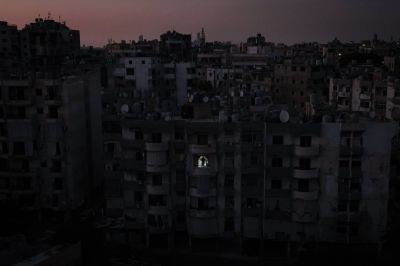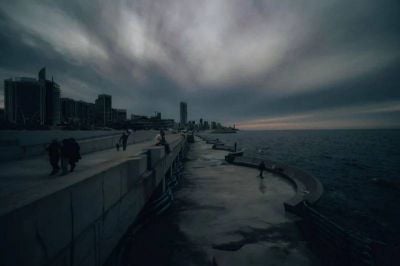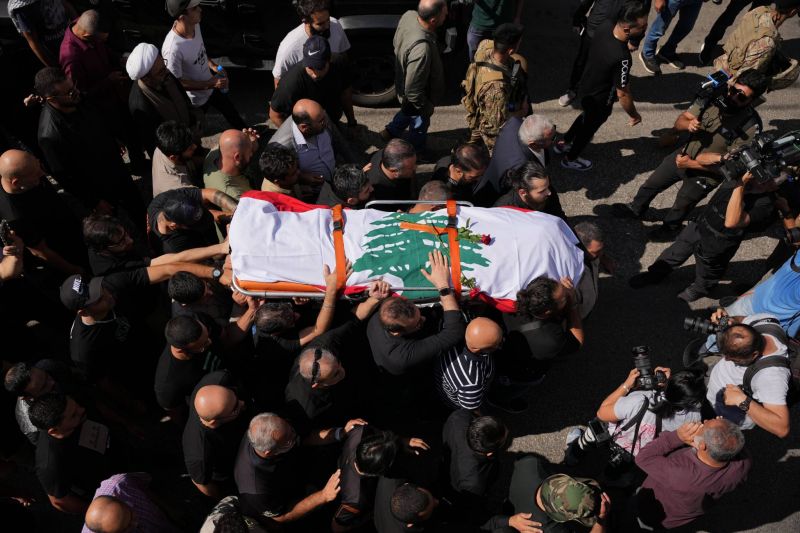
Residents of Khiam, a Lebanese border village, mourn journalist Issam Abdallah, who was killed by Israeli artillery fire on Oct. 13, 2023 while covering clashes at the southern border. (Credit: Mohammad Yassin/L'Orient Today)
I had thought I would get some rest. The violent clashes this summer in the Ain al-Hilweh camp ended, and a cease-fire was reached in a deadly conflict I had been on the ground covering for over a month and a half.
I had hoped to take a short vacation in my hometown of Khiam, which is next to the border with occupied Palestine.
I hadn’t expected that, in such a short time, Khiam, too, would be at the center of a new storm, as had happened many times before due to displacement, bombardment, destruction and the 22 years it was under Israeli occupation.
I couldn't visit Khiam until its liberation in 2000, when Israeli troops withdrew from southern Lebanon. They say every joyous occasion in the south is overshadowed by memories of war with Israel.
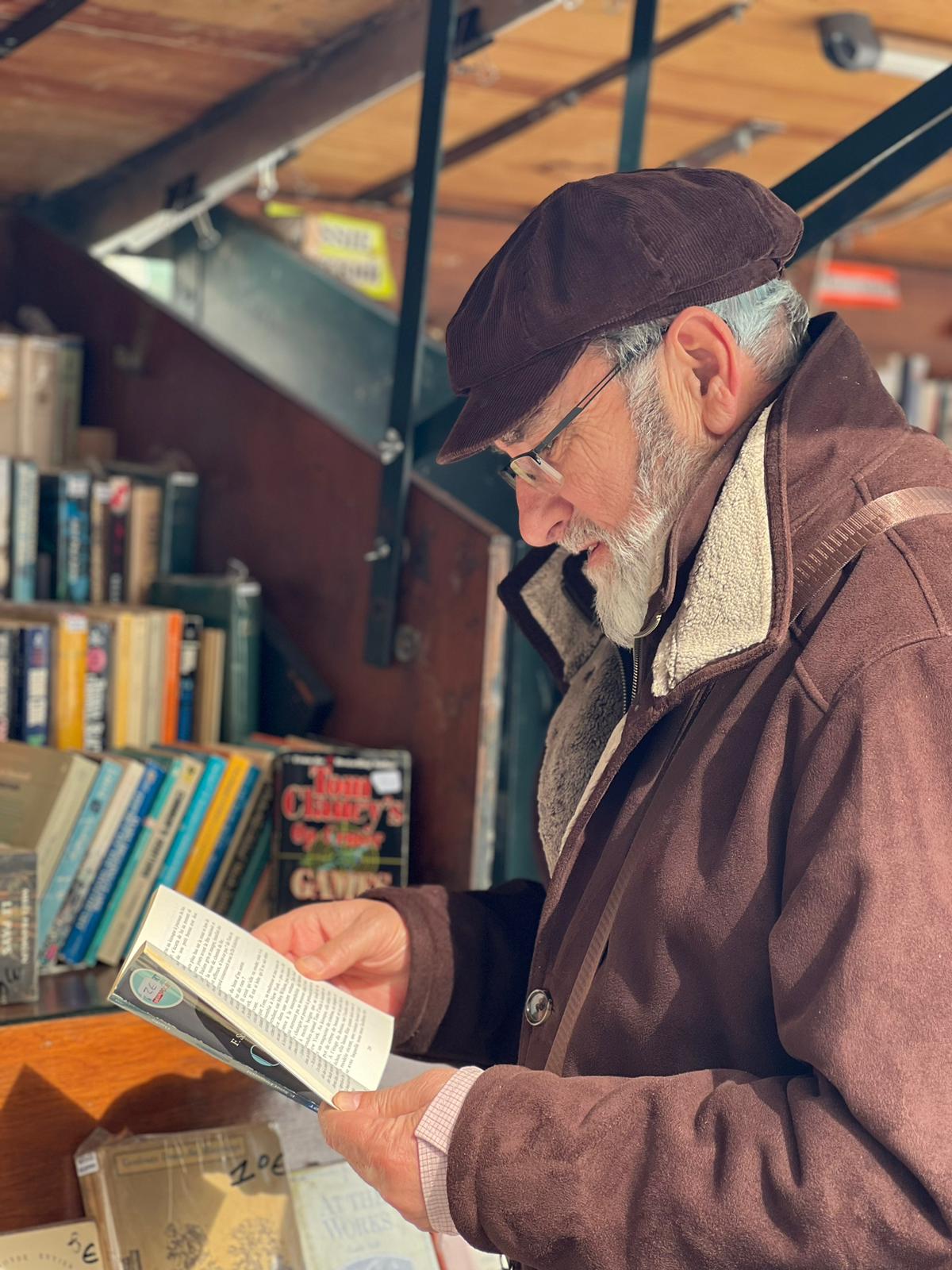 The author in Paris in 2022.
The author in Paris in 2022.
However, Hamas’ invasion of the Israeli settlements around Gaza on Oct. 7 kept me on high alert, considering the repercussions this would have on Lebanon — particularly the southern front with Palestine. Indeed, it wasn’t long before Hezbollah attacked Israeli military positions in the occupied Kfar Shuba hills on Oct. 8, declaring its solidarity with Hamas.
And thus, once again, began my journey of monitoring the news, preparing myself and sourcing information in anticipation of the situation escalating.
From the public statements of Hassan Nasrallah and the leaders of the Palestinian factions Hamas and Islamic Jihad, it was clear that the southern front was joining Hamas in their battle in Gaza. Both Hamas and Islamic Jihad began launching rockets from southern Lebanon, and day by day, operations against Israeli positions increased. The Israeli counterattacks expanded too, targeting nearby villages — and sometimes homes.
Images of the 2006 war and scenes of bombardment, destruction, deaths and injuries came flooding back to my mind. The fear of witnessing such scenes again became palpable.
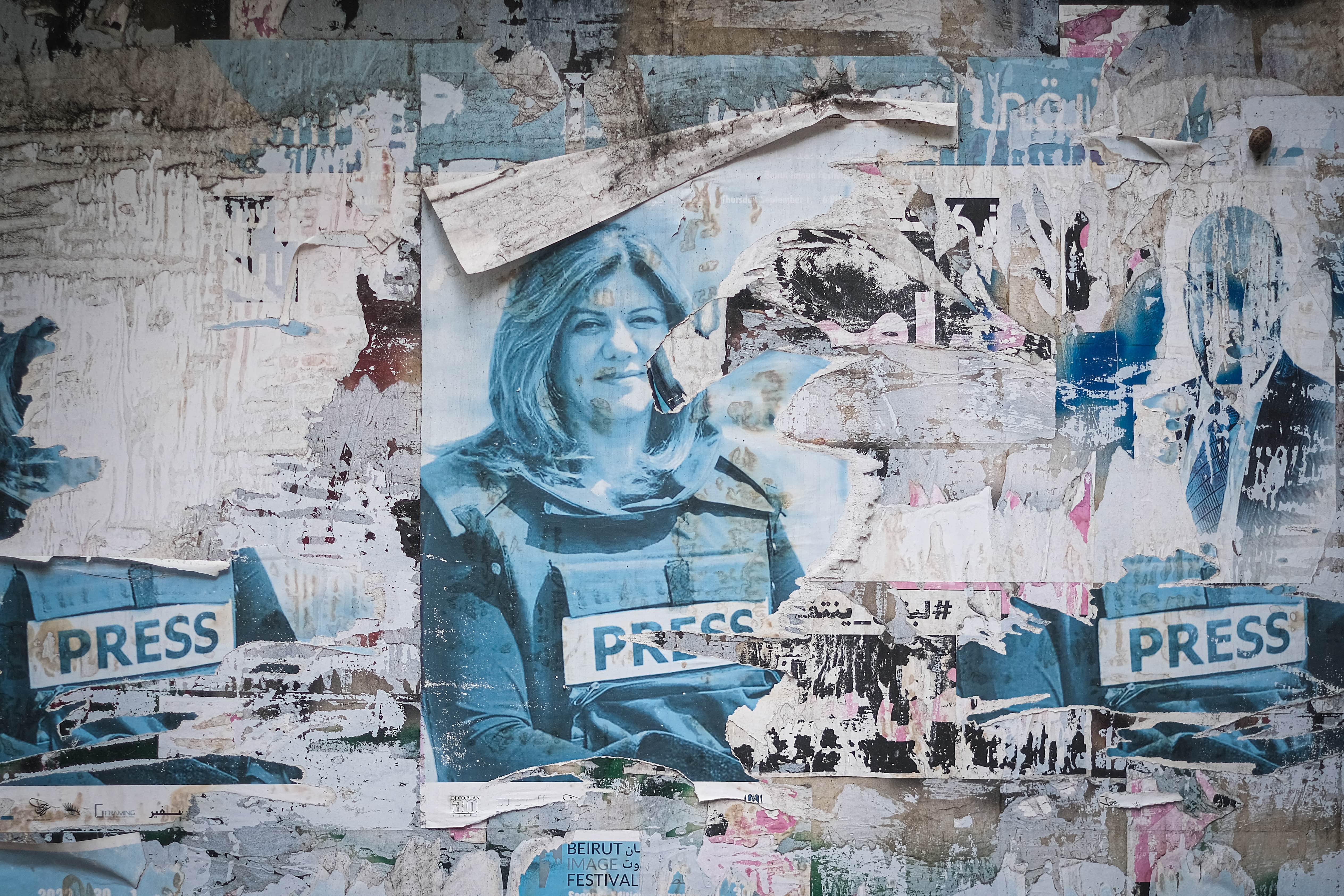 Poster in Beirut of Palestinian journalist Shireen Abu Akleh, who was killed by Israeli forces in 2022 while covering a military raid in Jenin, the occupied West Bank. (Credit: João Sousa/L'Orient Today/File photo)
Poster in Beirut of Palestinian journalist Shireen Abu Akleh, who was killed by Israeli forces in 2022 while covering a military raid in Jenin, the occupied West Bank. (Credit: João Sousa/L'Orient Today/File photo)
Yet my experience covering wars for 44 years has prepared me. I reported on the 1982 invasion, the wars of 1993, 1996, and, lastly, the 2006 war. I know that I will come face-to-face with fear, displacement, destruction and even death.
Though it’s been 14 days since the gradual escalation began in the south, having multiple sources on your phone isn’t enough in wars. You have to be at the scene, watching, listening, monitoring and waiting. You have to be present to convey the reality and the truth, which sometimes requires taking risks. At times, you’re on a hill watching the bombardment, hearing the clashes and simply observing. You roam the border villages, checking on the people.
In Kfar Kila, a town adjacent to the dividing strip between Lebanon and occupied Palestine, some people, still haunted by memories of the 2006 war, leave their homes out of intense fear, not wanting to relive those moments. Mohammad, a 60-year-old father of five, told me: “The 2006 war took us by surprise. We left our homes barefoot, without our clothes. Now, I am prepared for it. Everyone is hinting at war, and before it happens, I will leave with my family to somewhere that might be safer.”
Abu Hussein, another resident of Kfar Kila, quoted from Mahmoud Darwish's poetry, telling me:
“At times in wars, we are the victims on whom every form of killing has been tried, even the latest weapons. Yet, we are the miracle that does not die and cannot be killed.” He said he was determined to stay in his house in Kfar Kila.
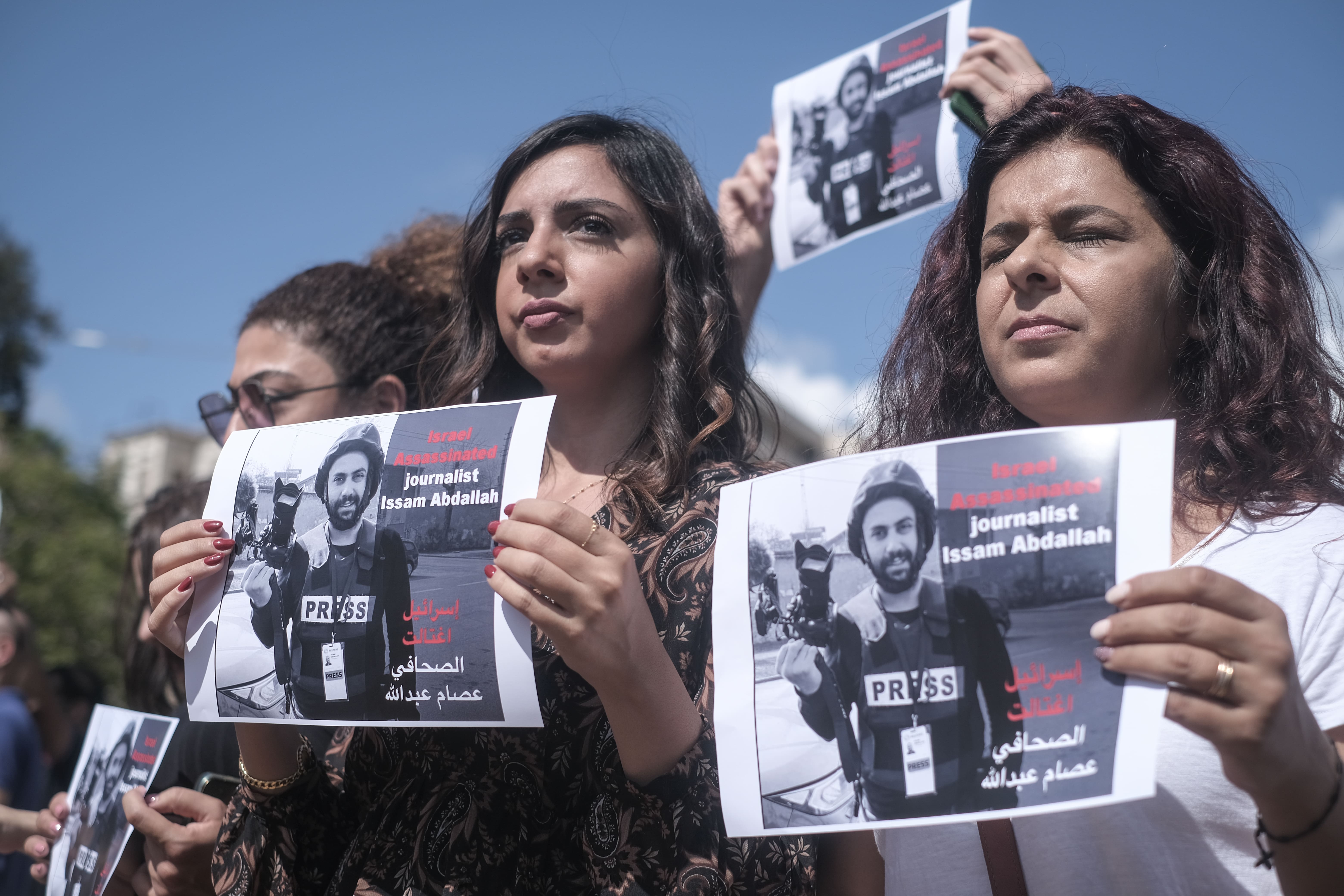 Colleagues stand in solidarity with Lebanese journalist Issam Abdallah, who was killed by Israeli artillery fire on Oct. 13, 2023 while covering clashes at the southern border. (Credit: João Sousa/L'Orient Today)
Colleagues stand in solidarity with Lebanese journalist Issam Abdallah, who was killed by Israeli artillery fire on Oct. 13, 2023 while covering clashes at the southern border. (Credit: João Sousa/L'Orient Today)
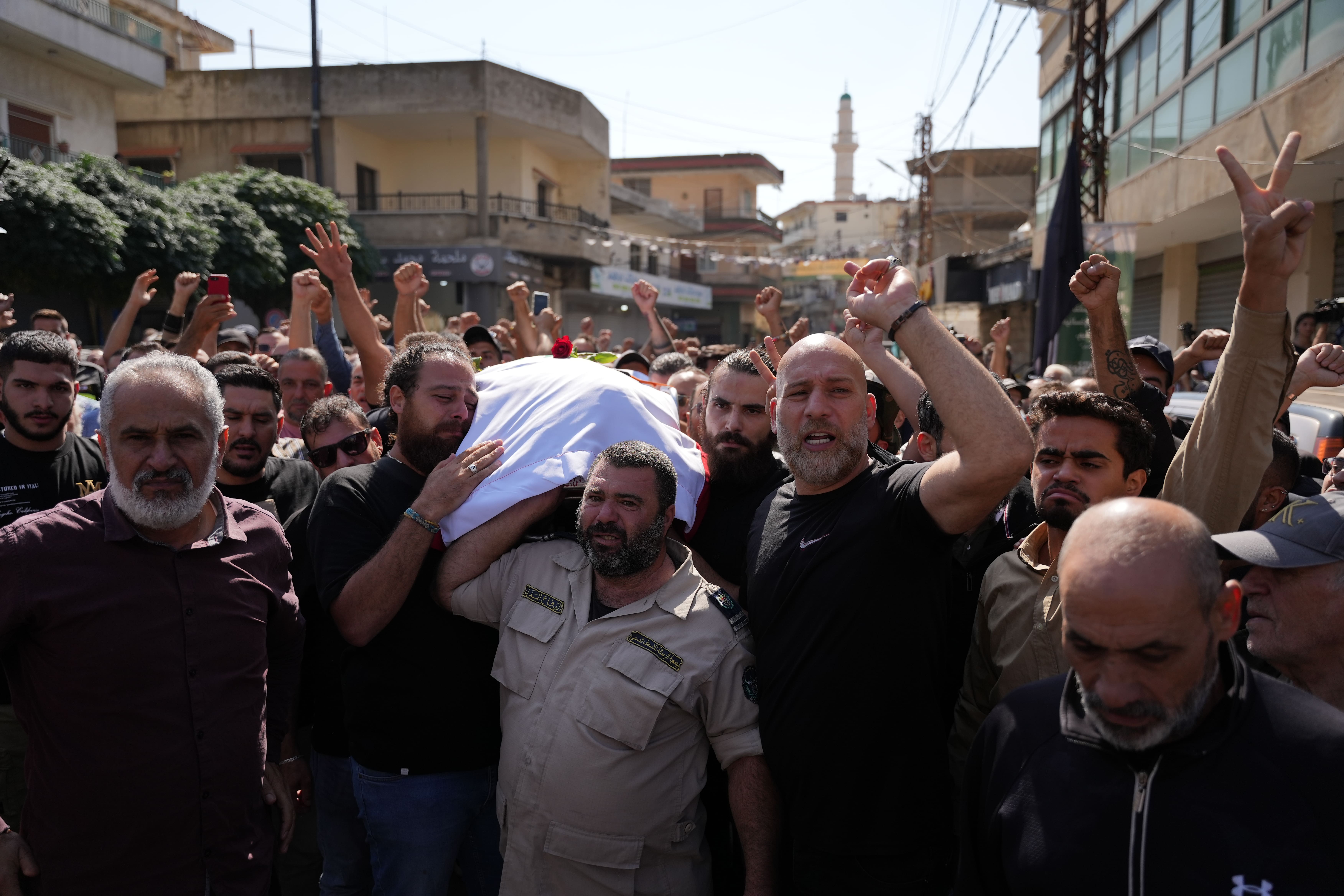 Residents of Khiam, a Lebanese border village, mourn journalist Issam Abdallah, who was killed by Israeli artillery fire on Oct. 13, 2023 while covering clashes at the southern border. (Credit: Mohammad Yassin/L'Orient Today)
Residents of Khiam, a Lebanese border village, mourn journalist Issam Abdallah, who was killed by Israeli artillery fire on Oct. 13, 2023 while covering clashes at the southern border. (Credit: Mohammad Yassin/L'Orient Today)
In wars, human emotions sometimes fade, especially when you interview the victims, or the scared, or the displaced, or the injured. If you could ask the dead how they died, you would.
For a moment, you talk with those fleeing their homes without noticing their fear; with the injured without feeling their pain; and with the dead without looking into their eyes.
It’s as if there’s no life, as if there’s no humanity.
It feels like you’re in a dream.
But after you finish your report and everything calms down, suddenly, it’s as if you wake up from a dream, and the memories come flooding back. Your emotions begin to hurt you to the point of tears, and you realize the magnitude of what's happening.
There’s a thin line between your profession and your humanity. Maybe it’s not in the best interest of either to dominate the other.
Upon hearing about the deaths of Khalil Hashem and his wife Rabab al-Akoum in the town of Kfar Shuba, my first concern was to confirm or deny the news without feeling the event. After confirming their deaths under the roof of their own home, which was hit by an Israeli shell, I finally felt that two humans had been killed and I mourned them deeply.
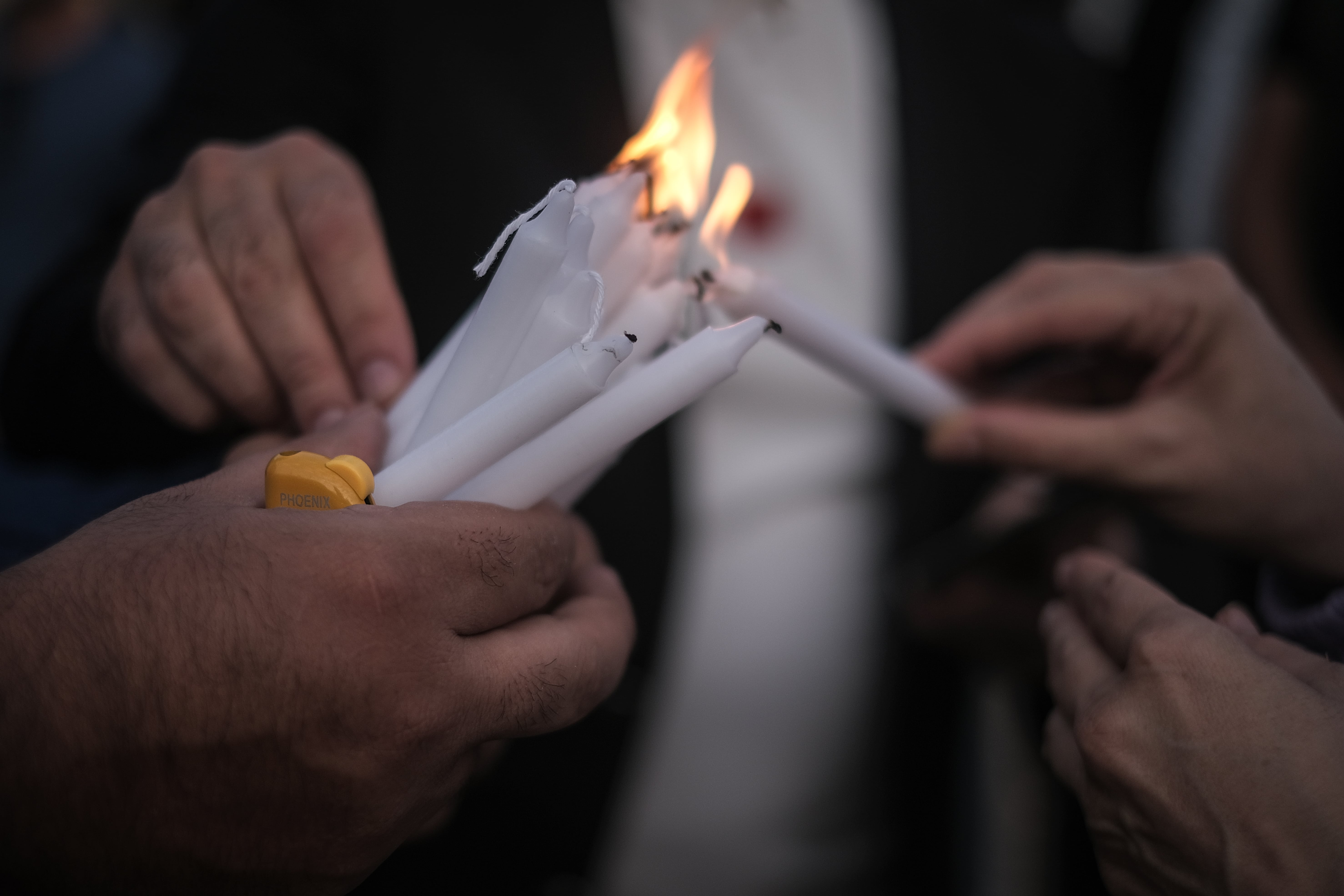 Colleagues mourn Lebanese journalist Issam Abdallah, who was killed by Israeli artillery fire on Oct. 13, 2023 while covering clashes at the southern border. (Credit: João Sousa/L'Orient Today)
Colleagues mourn Lebanese journalist Issam Abdallah, who was killed by Israeli artillery fire on Oct. 13, 2023 while covering clashes at the southern border. (Credit: João Sousa/L'Orient Today)
War is terrifying. Humans, sadly, just become numbers.
War might cost you your life, even after some time. This is what happened with my relative, Reuters videographer Issam Abdallah, who was from my hometown of Khiam. His team’s car was targeted by an Israeli missile. It destroyed the car, instantly killing Issam and injuring the others. Issam had covered many wars in his 37 years. The news pained me deeply.
During Issam’s funeral, our eyes were filled with tears and sadness enveloped us. Soft crying choked our throats. His sister would say: “Don’t raise your voices so you don’t wake Issam up.” Many of his colleagues whispered about who might be next.
Ours isn’t a profession about looking for trouble; it’s a profession that touches danger, even touches death. Just like you touched death, Issam.
The war hasn’t yet started. Either way, we will work to convey the truth.
We will try to lessen the pain.
And if the war starts, only the dead will bear witness to its end.
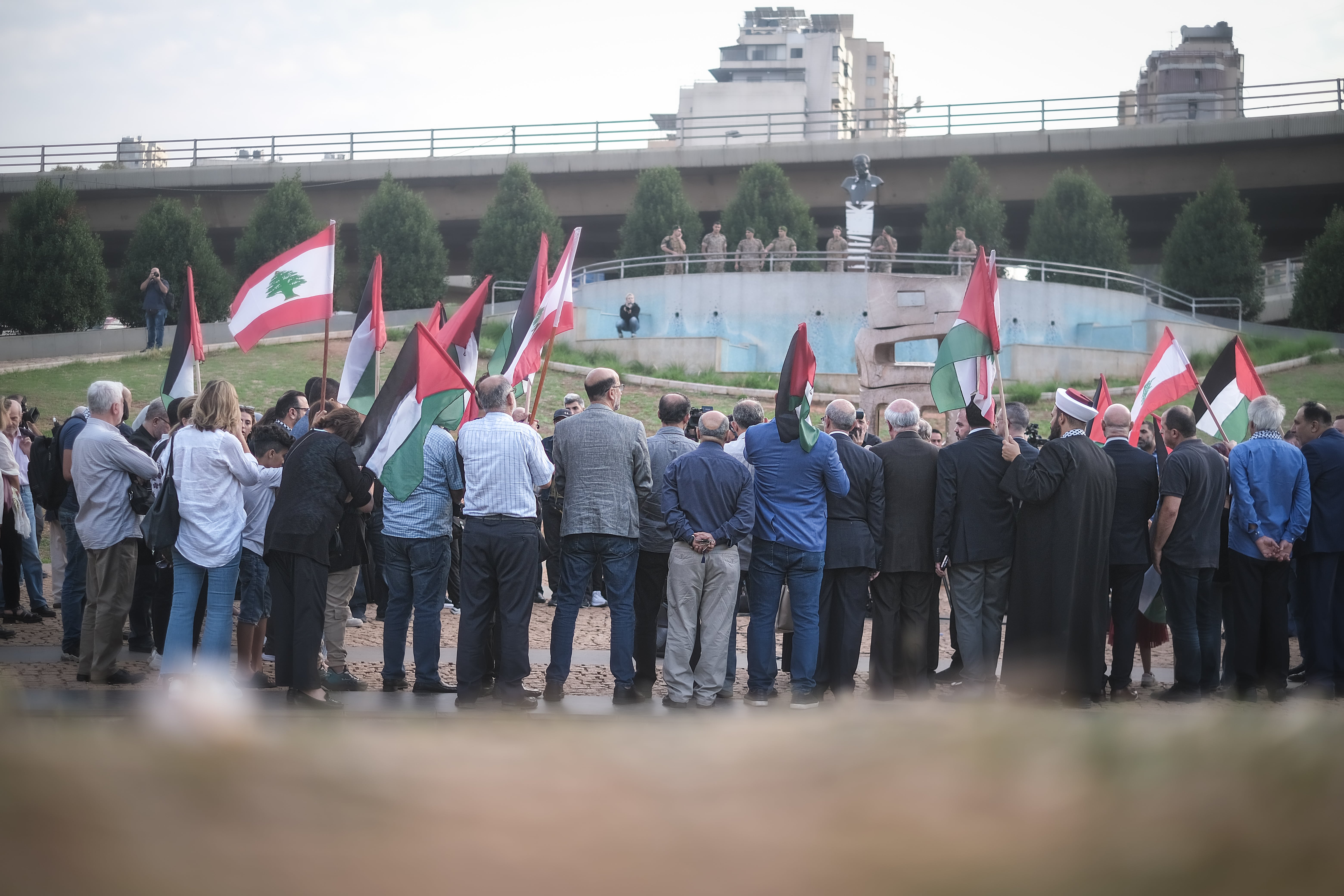 Colleagues stand in solidarity with Lebanese journalist Issam Abdallah, who was killed by Israeli artillery fire on Oct. 13, 2023 while covering clashes at the southern border. (Credit: João Sousa/L'Orient Today)
Colleagues stand in solidarity with Lebanese journalist Issam Abdallah, who was killed by Israeli artillery fire on Oct. 13, 2023 while covering clashes at the southern border. (Credit: João Sousa/L'Orient Today)
